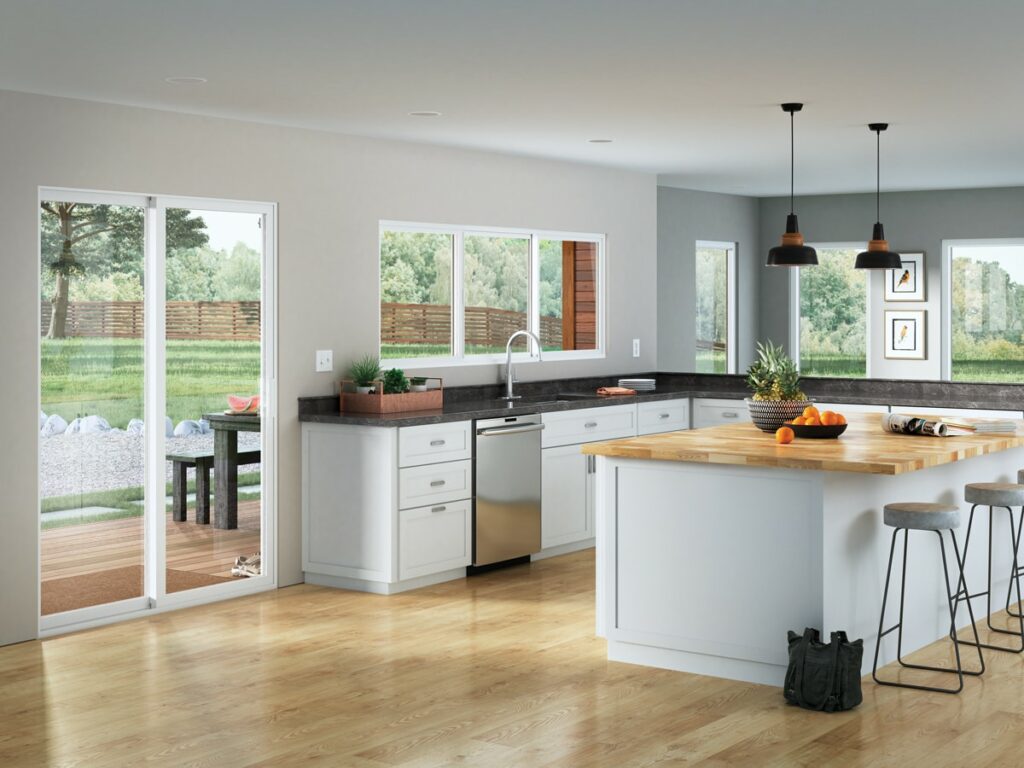The average lifespan of a residential window is 15 to 30 years. The long lifespan of windows is great for homeowners. However, since installing new windows isn’t something that is done very often, it can be confusing to know what to look for when purchasing windows. If you’re in the market for new windows for your home, be sure to thoroughly investigate all of the various options.
- Frame Material: The frame of the window holds the glass panes and can be made of several materials. The most common types of frames are wood, vinyl, aluminum, fiberglass, wood-clad, and composite. Each type has its own advantages and disadvantages in regard to upkeep, longevity, and style.
- Style: A window’s style refers to how (or if) it opens. Popular styles include single-hung windows (only the bottom sash opens), double-hung windows (both sashes open), casement windows (windows crank open), slider windows, bay or bow windows, and fixed windows. Don’t assume that you have to replace your current window with the exact same style; consider if another option may better suit your lifestyle.
- Panes: While some older homes may still have single pane windows, most homes have double or triple pane windows. The more panes, the more durable the window will be. In addition, windows with multiple panes have a tighter seal which helps lower heating and cooling costs. They are also better at reducing outside noise.
- Glazing: The most common type of window glazing is a Low-E, an invisible coating that is very effective in regulating the temperature inside of a house. Various levels of Low-E coatings are available and are often chosen based on the climate in your area. Other glazing options can help to reduce noise, provide extra security, or tint the windows.
- Energy Efficiency: All windows undergo National Fenestration Rating Council testing which measures their energy-efficiency. This rating is clearly marked on the window. Top-rated windows receive the ENERGY STAR logo certification. If energy-efficiency is of importance to you, look for the ENERGY STAR seal.
- Warranty: Window warranties typically cover the frames, panes, and installation. Limited warranties on less expensive windows may only last for three to five years; high-quality windows usually come with a longer lasting warranty. Before purchasing new windows, make you that you understand what the warranty covers.
Let True View Windows and Glass help demystify the window buying process for you. We pride ourselves on working with customers to find the right windows to fit their needs, their wants, and their budget. Contact us today to learn more about residential window replacement.










 A note from Ron & Deb:
A note from Ron & Deb: